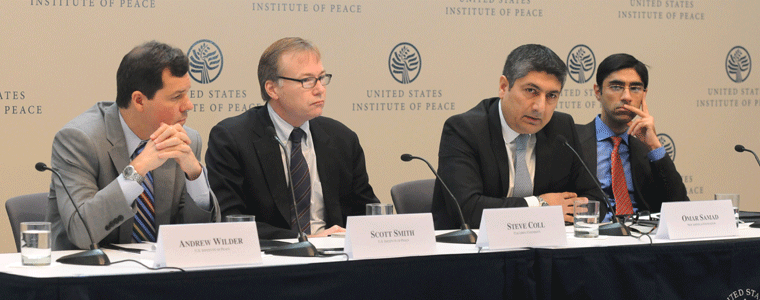Getting it Right in Afghanistan
Prospects for 2014
The United States Institute of Peace hosted a panel discussion to launch its latest book, Getting it Right in Afghanistan, on what needs to be done in 2014 in Afghanistan. Panelists included Ghost Wars author Steve Coll, former Afghan Ambassador Omar Samad, and USIP’s Moeed Yusuf. The panel discussion was preceded by an introduction by Andrew Wilder, and a brief presentation of the book by Scott Smith.

The upcoming year will undoubtedly be challenging in Afghanistan with a crucial election next April that will lead to the country’s first democratic transfer of power. There is a prevailing climate of uncertainty relating to the drawdown of the international military and assistance presence, as well as over the signing of the Bilateral Security Agreement with the United States. Support for future assistance is dropping quickly in donor countries, especially in the United States. Panelists at “Getting it Right in Afghanistan” have the knowledge and experience to dissect and make recommendations of both the risks and opportunities of the next year.
Speakers
Andrew Wilder, Introduction and Welcome
Vice President, Center for South and Central Asia, U.S. Institute of Peace
Scott Smith, Presentation of Getting it Right in Afghanistan
Director, Afghanistan and Central Asia Program, U.S. Institute of Peace
Steve Coll
Dean, Columbia School of Journalism and author of Ghost Wars
Omar Samad
Former Afghan Ambassador to Canada and France; Senior Central Asian Fellow, New America Foundation
Moeed Yusuf
Director, South Asia Program, U.S. Institute of Peace



